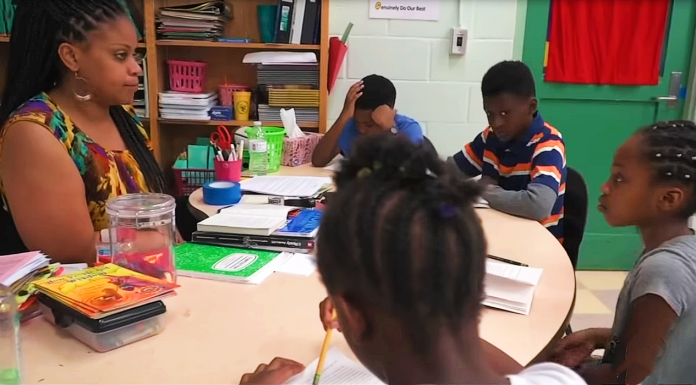A new study from global consulting group McKinsey says that school shutdowns because of the pandemic have resulted disastrous consequences for a generation of students in wide range of areas from mental health, unfinished learning and impaired future earnings potential.
Shutting down schools was among the most destructive policies of the pandemic, and a new report by McKinsey & Co. quantifies the harm. https://t.co/8b4sisNwhG
— WSJ Editorial Page (@WSJopinion) July 29, 2021
“The fallout from the pandemic threatens to depress this generation’s prospects and constrict their opportunities far into adulthood,” says the report. “The ripple effects may undermine their chances of attending college and ultimately finding a fulfilling job that enables them to support a family.”
On average the report found that students were “five months behind in mathematics and four months behind in reading by the end of the school year.”
Hardest hit were minority and disadvantaged lower income groups, with black and Hispanic students averaging six months of missed learning in math versus four months for their white peers.
In reading, they fell behind six and five months respectively, against three months for their white peers.
Republicans slammed Democrat-dominated teachers unions that have dominated the policies of forced school closures during the pandemic.
“House Democrats’ fealty to teachers’ unions has caused irreversible damage to students everywhere and parents will hold them accountable for that travesty,” said NRCC Spokeswoman Torunn Sinclair of the McKinsey reports findings.
While the initial shock of the shutdowns in the spring created a large gap in learning, the margins continued to grow with a rapidly widening learning gap appearing as the calendar year 2020 ended.
The results aren’t only academic either.
McKinsey estimated that the economy will miss out on over $100 billion in GDP annually, mostly in lost wages, for these graduating classes.
“We anticipate a potential annual GDP loss of $128 billion to $188 billion from pandemic-related unfinished learning,” says McKinsey.
That amounts to $4.5 to $6.6 trillion of lost GDP over a 35-year working career.
Once again, minority groups figured to be hardest hit by the diminished wages.
“Our previous research indicated that the pre-COVID-19 racial achievement gap was equivalent to $426 billion to $705 billion in lost economic potential every year,” sad the report.
The Wall Street Journal also blamed teachers unions for the crisis saying they “were the main architects of this calamity by first refusing to return to the classroom, then insisting on watered-down schedules.”
The Journal also noted that the McKinsey report represented “an optimistic scenario,” which we may find much worse over time.
McKinsey recommended a number of steps that can help offset the damage done by the lack of in-person teaching, including more federal education spending to make up for money lacking at the state and local level and “reimagining” the education systems that address what they call the “historic” imbalance between black and white education in America.
The Wall Street Journal editorial board agreed with a reimagined education system, but one that gave more choices to lower-income parents.
“Many affluent parents have paid for tutors or private school, but the most vulnerable children don’t have that option,” it said. “The solution is more school choice nationwide.”

